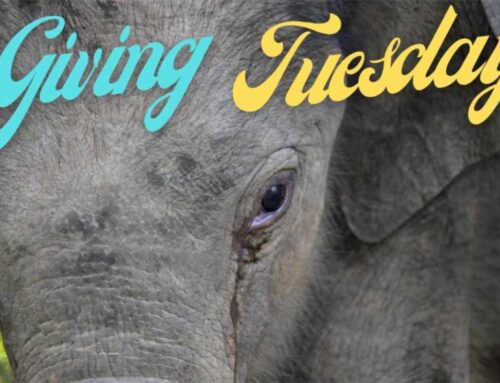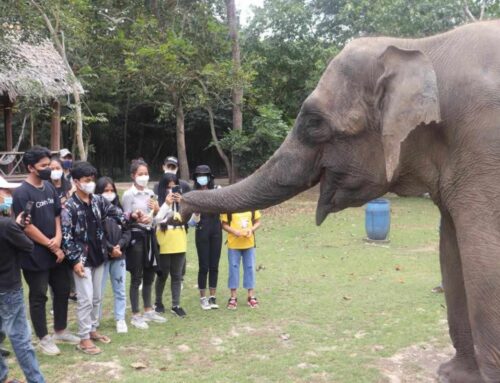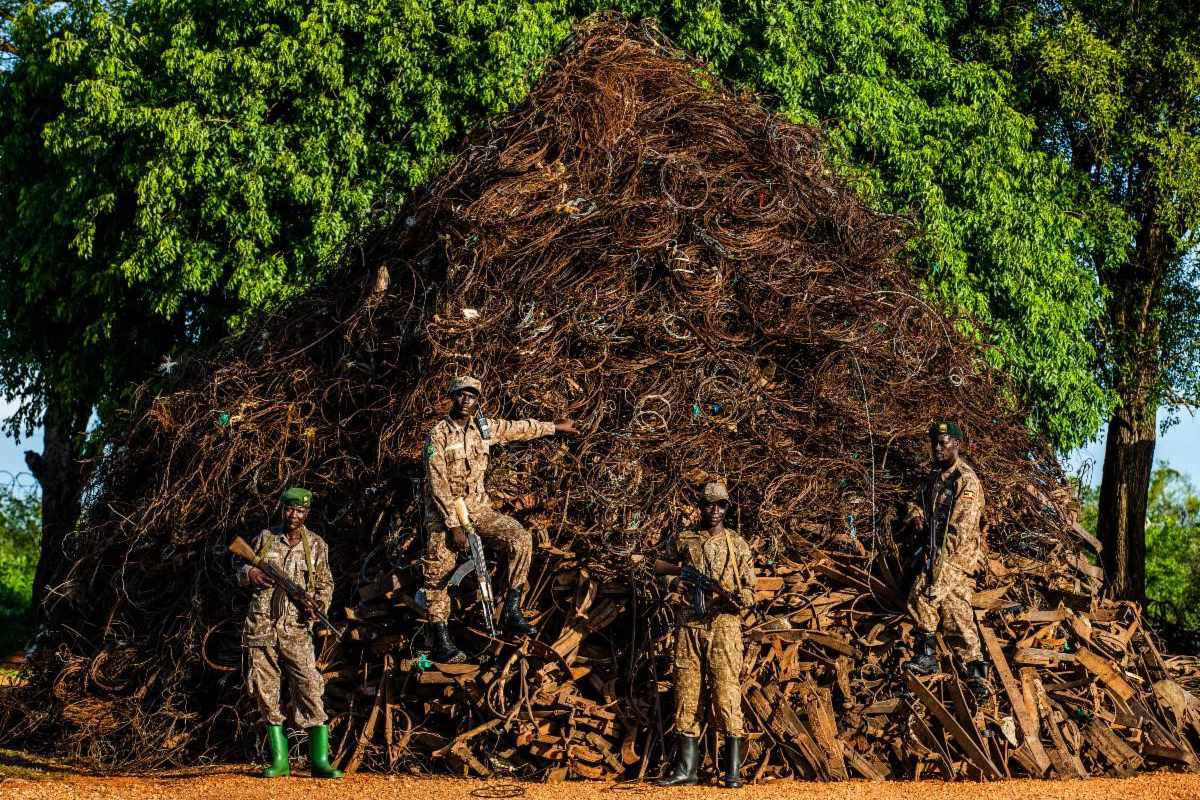
Photo Credit: Paul Hilton Photography / Global Conservation / UCF
International Elephant Foundation
FOR IMMEDIATE RELEASE
Snare Mountain Press Release
September 19, 2023
World-renowned photojournalist Paul Hilton created “Snare Mountain” from a massive pile of wire snares and leg-hold traps confiscated in just one single year as part of the Ugandan Murchison Falls Recovery Programme. Led by Uganda Wildlife Authority (UWA) and the Uganda Conservation Foundation (UCF) and supported by the International Elephant Foundation (IEF) and other partner donors, anti-poaching patrols confiscated over 12 tons of leg-hold traps and wire snares in Murchison Falls National Park (MFNP) in 2022 alone – at least 10 times the amount featured in the Snare Mountain photo. Not just confined to Uganda, these cruel devices are decimating wildlife populations throughout Africa as well as in Asia.
This photo represents a growing form of poaching and a significant challenge facing wildlife and those who protect them. Snares and leg-hold traps are indiscriminate killers, crushing the legs of lions and giraffe, maiming adult elephants, and even injuring rangers. Until recent years, snares and traps were a common means of hunting bushmeat for subsistence poachers. Bushmeat is a generic term for meat from wildlife species hunted for human consumption. Bushmeat taken for a person’s own consumption is an important source of protein in poor, rural communities but it is illegal in national parks and designated areas throughout Africa and Asia.
However, indicated by the sheer numbers of snares and leg-hold traps confiscated, this type of poaching can no longer be considered subsistence, signifying the prevalence of well-financed syndicates working across Uganda and other parts of Africa poaching for profit. Poaching is taking huge numbers of MFNP’s hippos and smaller ungulates with lions, Rothchild’s giraffe and elephants being impacted indirectly. Snares and traps are a serious threat because of the very large numbers being set especially in remote areas, and easy access to snare and trap making material.
Snare Mountain represents a significant challenge but not an unsurmountable one as over the past 10 years, UWA, with UCF and IEF’s support and the recent addition of 20 permanent Scouts, have removed about 47 tons of snares and leg-hold traps. With increased funding, manpower, and education programs habitat can be made safe for wildlife and populations can begin to recover.
Impact of COVID-19 Pandemic
The global shutdown in response to COVID-19 changed everything. Travel stopped and with it so did tourism which is the primary source of income for UWA, the government and a large percentage of the population. Park entrance fees fund rangers and patrols and the loss of funding from tourism, and redirection of funds away from conservation efforts in favor of pandemic mitigation caused UWA to drastically cut their budget. This impacted ranger patrols and operations. Many businesses from travel to food and beverage industries to hospitality to city and country markets are reliant on tourist spending, and these businesses employ thousands of people in the cities as well as areas surrounding national parks. Out of work and struggling to support their families, many locals have turned to bushmeat poaching, setting snares, and other forms of wildlife crime. This is especially evident in areas where ranger presence has been reduced.
Scouts Programme
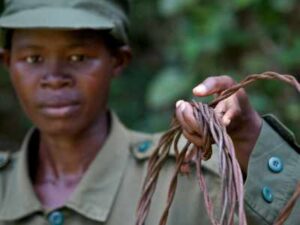 Moving arm-in-arm as a line, stepping methodically, unarmed Scouts traverse through the heart of poaching country in Uganda identifying, dismantling, and removing snares. Their boots protect them from briars and bites, but are no match for leg-hold traps which can close with enough force to crush a human leg. These Scouts do important work helping protect endangered and threatened species in MFNP and building UWA’s capacity to protect wildlife.
Moving arm-in-arm as a line, stepping methodically, unarmed Scouts traverse through the heart of poaching country in Uganda identifying, dismantling, and removing snares. Their boots protect them from briars and bites, but are no match for leg-hold traps which can close with enough force to crush a human leg. These Scouts do important work helping protect endangered and threatened species in MFNP and building UWA’s capacity to protect wildlife.
Changing the hearts and minds of the people and breaking decades-long practices of illegal harvesting, wildlife crime and poaching to make ends meet is the ultimate goal. This is where the Scouts Programme comes in; it is the next step in building a sustainable conservation ethic for communities surrounding MFNP. Poaching is often a family business, with techniques, preferred spots, and networks passed down from generation to generation. But the dangers and risks are real. As Uganda as a nation recovers, families want better for their sons and daughters.
The Scouts Programme was developed by UCF to stop the cycle of poaching within families. They approached the elders of households who were known to be involved in poaching or were having problems with wildlife raiding their crops. UCF recognized that the elders themselves were unlikely to stop poaching because they were firmly entrenched in that lifestyle and have little else to do, but it could be possible to reduce or stop poaching completely if they helped a young family member in exchange. One hundred households agreed to this proposal and 100 youths were accepted into the UCF Youth Development Program which sponsored their education and provided employment as apprentices. Through this mentoring program, young people who were potentially headed for a life of crime and poverty have learned how to behave professionally, developed skills and became highly employable with multiple career choices.
A major component of their apprenticeship is working on the construction of ranger stations in MFNP. This gives the youths opportunities for one-on-one time with rangers and helps develop relationships and respect for authority and the environment. After completing the program, the young men and women are aided in securing employment, and not surprisingly thirty young people expressed interest in becoming rangers and twenty were chosen to enter training through the Scouts Programme, with lack of funding the only limiting factor for not all thirty being chosen.
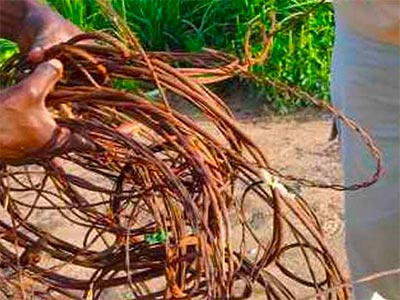

The Scouts receive training by UWA rangers. They are unarmed and do not have the power to arrest as they are just starting their conservation training. They work in the Delta carrying out low risk but high-volume work such as snare removal, boat operation and accompanying rangers on regular patrols, all of which helps to increase the capacity and effectiveness of security operations.
Due to COVID-19 new rangers were not hired to replace those who left the force. That loss coupled with an already too small force to fulfill the increased need as more ranger stations are built throughout the park have left large areas without surveillance simply due to a lack of man power. Therefore, Scouts have been a blessing as they are trained in critical routine roles which allows more rangers to move into the field for security patrols. Utilizing the Scouts also saves UWA veterinary services resources by reducing the number of vet rescue responses to animals involved with snares.
“Jewel of Africa” Murchison Falls National Park
Once known as the Jewel of Africa, Murchison Falls National Park (MFNP) is home to some of the most diverse and beautiful wildlife species in Africa. Known also for its spectacular waterfall of the same name, the Park is divided by the Victoria Nile River and covers an area of 3,877 km2 at the northern end of the Albertine Rift Valley, along the shores of Lake Albert in north-western Uganda. Appointed a national park in 1952, MFNP is the largest in Uganda and one of the most important in terms of biodiversity of plant and animal life as well as tourism.
Political instability during the 1970s and 1980s left government agencies unable to effectively manage the park. By the late 1970s poaching was out of control and the Nile crossing at Paraa within the park became the center of violent conflicts between various militias seeking power following the downfall of the military dictator, Idi Amin, in 1979. Armed groups on both sides of the river became involved in the wholesale slaughter of wildlife, using the park as a safe haven as well as a key source of bushmeat. During this time wildlife populations were reduced by 90%.
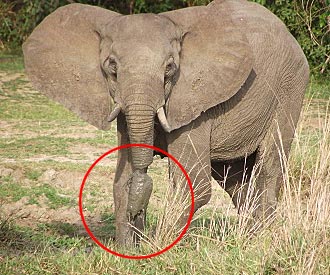
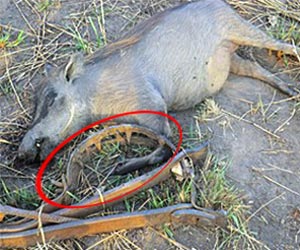
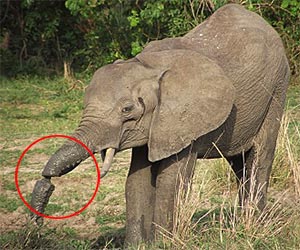
During the civil wars and then the invasion of the Lord’s Resistance Army in the 1990s, thousands of people living around MFNP moved to displaced persons camps leaving farms and villages to the remaining wildlife. With the return of peace, displaced persons returned to land abandoned years ago and villages and farms are rapidly increasing. The remaining elephants and other wildlife are now faced with the loss of access to their historic migration corridors, water and other resources resulting in increasing conflicts with humans, as well as being poached. Additional threats to elephants and other wildlife include the impact of oil extraction inside MFNP, heavy deforestation for charcoal burning, large number of firearms left over from armed insurgencies, an overall increase strain on natural resources due to rapid human population growth and widespread poverty, and overfishing. Illegal fishing along 30 kilometers of the River Nile in MFNP has not only dramatically reduced fish stocks in the area, but has resulted in otters, crocodile, and birdlife being killed.
Uganda Wildlife Authority (UWA) is Uganda’s Government agency responsible for the management and protection of wildlife in and outside protected areas. Conflict between humans and wildlife and poaching are now the largest threats to wildlife in MFNP, and both are undermining conservation and development efforts in the region. Besides bushmeat, elephants and hippos are the most poached animals and national intelligence reports lion, vultures and pangolins being increasingly trafficked.
Elephant conservation is crucial to the success of MFNP because elephants are important ‘ecosystem engineers”, knocking down brush and trees so grasslands can flourish for the many other species, and spreading the seeds of plants in their dung. Elephants are also the largest revenue earners as tourists demand to see elephants when they go on safari.
International Elephant Foundation Support
 IEF’s partnership with UCF supporting the recovery of elephants and wildlife begin in 2010. Initially building ranger stations in Queen Elizabeth National Park, it was soon clear that nearby MFNP was of high conservation priority. COVID-19 left a large strain on the operations of UWA rangers. Even before COVID-19, numbers, locations and condition of ranger stations in MFNP fell significantly short of needs. Over the past 10 years IEF has supported the construction of 15 ranger stations, a veterinary facility, and the Joint Operating Command Center (JOCC) which coordinates all of MFNP’s ranger and security operations. New ranger stations have reliable, clean water and sanitary provisions to replace the dilapidated stick and mud housing that had sheltered rangers at some of the sites in the past, as well as in the heart of poaching country where there is no ranger presence at all. Confiscated snares are used in the construction to fortify the foundations of these ranger stations, eliminating the possibility they can ever be used again.
IEF’s partnership with UCF supporting the recovery of elephants and wildlife begin in 2010. Initially building ranger stations in Queen Elizabeth National Park, it was soon clear that nearby MFNP was of high conservation priority. COVID-19 left a large strain on the operations of UWA rangers. Even before COVID-19, numbers, locations and condition of ranger stations in MFNP fell significantly short of needs. Over the past 10 years IEF has supported the construction of 15 ranger stations, a veterinary facility, and the Joint Operating Command Center (JOCC) which coordinates all of MFNP’s ranger and security operations. New ranger stations have reliable, clean water and sanitary provisions to replace the dilapidated stick and mud housing that had sheltered rangers at some of the sites in the past, as well as in the heart of poaching country where there is no ranger presence at all. Confiscated snares are used in the construction to fortify the foundations of these ranger stations, eliminating the possibility they can ever be used again.
Materials for construction of the ranger posts include handmade bricks from a partnership with Pacer Community College. Pacer Community College students participate in a vocational apprenticeship program, learning how to build hydrofoam bricks. At least fifteen thousand bricks are made by the students for each ranger station. An added benefit to working with Pacer Community College is that some of the students are then employed in the construction of future ranger posts as well as associated infrastructure. By partnering with Pacer, UCF/UWA is able to ensure regional development of vulnerable youth who then have a positive way forward. Each student intern gets paid and those funds help support their families and lessen their likelihood of engaging in poaching. All youth involved in the building of the bricks for the Law Enforcement and Operations Centre and other ranger stations are now fully employed, and many are keen to become rangers once the application process reopens. This is an example of a symbiotic relationship whereby conservation protection action and involving area youth enriches the community and wildlife.

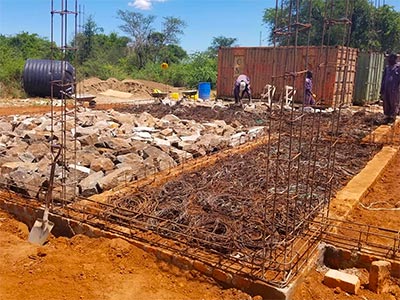
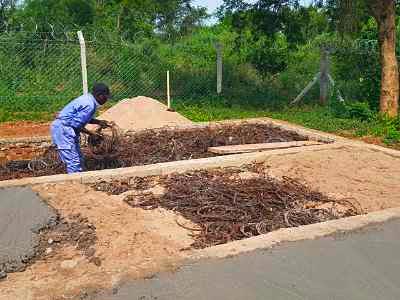
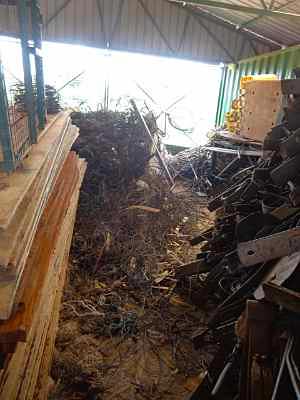
IEF believes it is our responsibility to meet the dedication of each ranger with support and respect embodied in the construction of modern ranger posts to increase their quality of life and help facilitate their difficult dangerous job. This commitment to the recovery of elephants, lions, giraffe, and more continues today. We are supporting the expansion of the Scouts Programme to continue to bolster and increase the capacity of the existing rangers.
We are also proud to report that just when conservation work was needed most during the pandemic and nearly all of the avenues for support for the rangers dried up, IEF not only fulfilled our commitment but provided additional funds. As a result, the population of highly endangered Rothschild giraffe is up from 400 to 2000 which represents 80% of Uganda’s total population, elephants from 500 to 16,000 and the lion population is also recovering. These efforts and more are helping Uganda return to its pre-war glory of being one of the very best places for wildlife tourism in all of Africa

